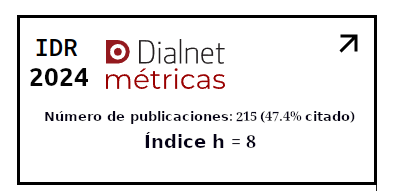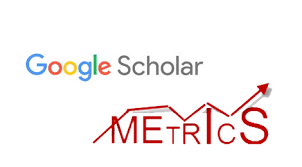Optimism and academic self-efficacy in university students from Metropolitan Lima in a virtual education context
DOI:
https://doi.org/10.30545/academo.2024.ene-abr.2Keywords:
Optimism, academic self-efficacy, university students, virtual educationAbstract
The main objective of the study was to analyze the relationship between optimism and academic self-efficacy in university students in Metropolitan Lima in the context of virtual education. A non-experimental study with a correlational and comparative design was used, with a sample of 361 students of both sexes, over 18 years of age, from Metropolitan Lima. The results showed that both study variables were significantly related, and it was also found that male students had higher academic self-efficacy scores than female students. In addition, it was found that adult students (25 to 43 years of age) had higher academic self-efficacy scores than younger students (18 to 24 years of age). It is concluded that optimism is associated with academic self-efficacy and that there is a significant difference at the level of sex and age in university students in Metropolitan Lima.
Downloads
References
Al-Jaber, M. A., & Al-Ghamdi, S. G. (2020). Effect of virtual learning on delivering the education as part of the sustainable development goals in Qatar. Energy Reports, 6 (December), 371-375. https://doi.org/10.1016/j.egyr.2020.11.174
Alarcon, R. (2013). Construcciòn y validacion de una escala para medir el optimismo. In XXXIV Congresso Interamericano de Psicologìa (SBPOT, pp. 378-386).
Altunsoy, S., Çimen, O., Ekici, G., Atik, A. D., & Gökmen, A. (2010). An assessment of the factors that influence biology teacher candidates’ levels of academic self-efficacy. Procedia - Social and Behavioral Sciences, 2(2), 2377-2382. https://doi.org/10.1016/j.sbspro.2010.03.340
Bandura, A. (1997). The anatomy of stages of change. American Journal of Health Promotion : AJHP, 12(1), 8-10. https://doi.org/10.4278/0890-1171-12.1.8
Bressler, L. A., Bressler, M. E., & Bressler, M. S. (2010). The role and relationship of hope, optimism and goal setting in achieving acadenic success: A students enrolled in online accounting courses. Academy of Educational Leadership Journa, 14, 4.
Casanova, J. R., Cervero, A., Núñez, J. C., Almeida, L. S., & Bernardo, A. (2018). Factors that determine the persistence and dropout of university students. Psicothema, 30(4), 408-414. https://doi.org/10.7334/psicothema2018.155
Castaño, J. (2011). El uso de internet para la interaccion en el aprendizaje: Un analisis de la eficacia y la igualdad [Tesis doctoral, Universitat Oberta de Catalunya]. Repositorio Institucional de la Universitat Oberta de Catalunya https://up-pe.libguides.com/c.php?g=1043492&p=7613287
Caycho, T., Ventura-Leon, J., & Castilla-Cabello, H. (2017). Análisis factorial confirmatorio de una escala de optimismo atributivo en una muestra peruana. Revista de Psicología, 7(1), 13-29. https://dialnet.unirioja.es/servlet/articulo?codigo=8541621
Chacón-Ortiz, M., Camacho-Gutiérrez, D., & Heredia-Escorza, Y. (2017). Conocimientos sobre aprendizaje móvil e integración de dispositivos móviles en docentes de la Universidad Nacional de Costa Rica. Revista Digital de Investigación en Docencia Universitaria, 11(1), 149-165. https://doi.org/10.19083/ridu.11.507
De Besa, M., Flores, J., & Garcia-Gonzales, A. (2019). Variables psicosociales y rendimiento académico asociados al optimismo en estudiantes universitarios españoles de nuevo ingreso. Acta Colombiana de Psicología, 22(1), 152-163. https://doi.org/http://www.dx.doi.org/10.14718/ACP.2019.22.1.8
Dominguez-Lara, S., & Fernández-Arata, M. (2019). Autoeficacia académica en estudiantes de Psicología de una universidad de Lima. Revista Electrónica de Investigación Educativa, 21, 1-13. https://doi.org/10.24320/redie.2019.21.e32.2014
Dominguez, S. (2014). Autoeficacia para situaciones académicas en estudiantes universitarios peruanos: Un enfoque de ecuaciones estructurales. Revista de Psicología,4(4), 45-53. https://www.researchgate.net/publication/282502801%0AAutoeficacia
Dominguez, S., Villegas, G., Yauri, C., Mattos, E., & Ramirez, F. (2012). Propiedades psicométricas de una escala de autoeficacia para situaciones académicas en estudiantes universitarios peruanos. Revista de Psiclogía, 2(1), 27-93. https://www.researchgate.net/publication/279204238%0APropiedades
Eisenberg-Berg, N., & Mussen, P. (1978). Empathy and moral development in adolescence. Developmental Psychology, 14(2), 185-186. https://doi.org/10.1037/0012-1649.14.2.185
El-Anzi, F. (2005). Academic achievement and its relationship with anxiety, self-esteem, optimism, and pessimism in kuwaiti students. Social Behavior and Personality, 33(1), 95-104. https://doi.org/10.2224/sbp.2005.33.1.95
Ferreyra, M. M., Avitabile, C., Botero, J., Haimovich, F., & Urzúa, S. (2017). La educación Superior en Amèrica Latina y el Caribe. https://doi.org/doi: 10.1596/978-1-4648-1014-5.
Gallego, A., & Martínez, E. (2003). Estilos de aprendizaje y e-learning. hacia un mayor rendimiento académico. Revista de Educación a Distancia, 7, 0.
Garofalo, J. P. (2000). Perceived optimism and chronic pain. In Personality characteristics of patients with pain. American Psychological Association. https://doi.org/10.1037/10376-009
Hérnandez, R., Fernández, C., & Baptista, P. (2014). Metodología de la investigación (McGraw-Hil).
Honicke, T., & Broadbent, J. (2016). The influence of academic self-efficacy on academic performance: A systematic review. Educational Research Review, 17(January), 63–84. https://doi.org/10.1016/j.edurev.2015.11.002
Huang, C. (2013). Gender differences in academic self-efficacy: A meta-analysis. European Journal of Psychology of Education, 28(1), 1-35. https://doi.org/10.1007/s10212-011-0097-y
Hyde, J. S., Fennema, E., & Lamon, S. J. (1990). Gender differences in mathematics performance: A meta-analysis. Psychological Bulletin, 107(2), 139-155. https://doi.org/10.1037/0033-2909.107.2.139
Khanna, R., & Kareem, D. J. (2021). Creating inclusive spaces in virtual classroom sessions during the COVID pandemic: An exploratory study of primary class teachers in India. International Journal of Educational Research Open, 2–2(January), 100038. https://doi.org/10.1016/j.ijedro.2021.100038
Kohler, J. (2009). Rendimiento académico asociado a la autoeficacia de estudiantes de 4to. y 5to. año de secundaria de un colegio nacional de Lima. Cultura Lima (Perú), 23(1-100), 1–100. http://www.revistacultura.com.pe/revistas/RCU_23_1_rendimiento-academico-asociado-a-la-autoeficacia-de-estudiantes-de-4to-y-5to-ano-de-secundaria-de-un-colegio-nacional-de-lima.pdf
Kumar, V. V., Carberry, D., Beenfeldt, C., Andersson, M. P., Mansouri, S. S., & Gallucci, F. (2021). Virtual reality in chemical and biochemical engineering education and training. Education for Chemical Engineers, 36, 143-153. https://doi.org/10.1016/j.ece.2021.05.002
Li, L., Gao, H., & Xu, Y. (2020). The mediating and buffering effect of academic self-efficacy on the relationship between smartphone addiction and academic procrastination. Computers and Education, 159(August), 104001. https://doi.org/10.1016/j.compedu.2020.104001
Londoño, C. (2009). Optimismo y salud positiva como predictores de la adaptación a la vida universitaria. Acta Colombiana de Psicologia, 12(2), 95-107. https://doi.org/10.14718/ ACP.2016.19.2.1
Padilla-Meléndez, A., Del Aguila-Obra, A. R., & Garrido-Moreno, A. (2013). Perceived playfulness, gender differences and technology acceptance model in a blended learning scenario. Computers and Education, 63, 306-317. https://doi.org/10.1016/j.compedu.2012.12.014
Pajares, F. (2005). Gender differences in mathematics: An integrative psychological approach. In Gender differences in mathematics: An integrative psychological approach. https://doi.org/10.1017/CBO9780511614446
Palenzuela, D. (1983). Construcción y validación de una escala de autoeficacia percibida específica de situaciones académicas. Análisis y Modificación de Conducta, 9(21). https://doi.org/10.33776/amc.v9i21.1649
Penta Analytics. (2017). En Perú, el 27% de los ingresantes a universidades privadas abandonan su carrera en el primer año de estudios - Penta Analytics. https://www.analytics.cl/ educacion/peru-27-los-ingresantes-universidades-privadas-abandonan-carrera-primer-ano-estudios/
Pérez-López, E., Vázquez Atochero, A., & Cambero Rivero, S. (2021). Educación a distancia en tiempos de COVID-19: Análisis desde la perspectiva de los estudiantes universitarios. RIED. Revista Iberoamericana de Educación a Distancia, 24(1), 331-350. https://doi.org/10.5944/ried.24.1.27855
Ramudo, I., Brenlla, J. C., Barca, A., & Peralbo, M. (2017). Enfoques de aprendizaje, autoeficacia y rendimiento académico en el alumnado de bachillerato: Implicaciónes enseñanza. Revista de Estudios e Investigación En Psicología y Educación, December, 138-142. https://doi.org/10.17979/reipe.2017.0.01.2435
Sánchez-Franco, M. J. (2006). Exploring the influence of gender on the web usage via partial least squares. Behaviour and Information Technology, 25(1), 19-36. https://doi.org/10.1080/01449290500124536
Tur-Porcar, A. M., Doménech, A., & Jiménez, J. (2019). Eficacia académica percibida, crianza, uso de internet y comportamiento en la adolescencia. Revista Latinoamericana de Psicología, 51(1), 38-47. https://doi.org/10.14349/rlp.2019.v51.n1.5









